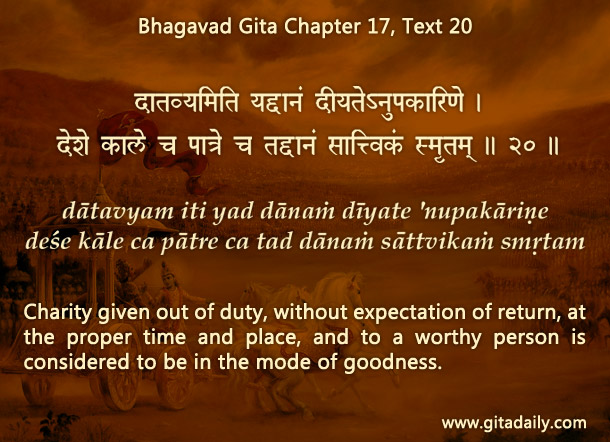To be compassionate be both caring and careful
Suppose a doctor is asked to travel to an epidemic zone to treat patients. To take up such an assignment, they would need to have compassion. And their compassion needs to manifest in two simultaneous ways: by being caring and careful. They need to be caring; otherwise, why would they go through all the trouble and risk of going to an infected area? And they need to be careful; otherwise, they might become infected by the very same disease they were supposed to treat.
A similar principle applies to us when we exercise compassion in any walk of life, even in spiritual life when we share spiritual wisdom with others. While sharing such wisdom, we often need to associate with people who live materialistically. We need to be caring, to recognize that living in materialistic consciousness is the recipe for dissatisfaction and frustration, a dark fate that we can help them come out of. Simultaneously, we need to be careful, knowing that their materialistic consciousness can infect us, thereby leading to our getting contaminated.
Even while we give charity to the needy, we need to be both caring and careful. If someone is starving, we need a heart that cares; only then will we want to offer them some help. But we also need a head that is clear enough to, say, check whether they are starving because of squandering all their money on alcoholism; whether they might misuse our charity to drink further; and whether they might commit further wrongs under the influence of alcohol.
Pertinently, the Bhagavad-gita (17.20) urges us to temper whatever charitable instinct we may have by considering time-place-circumstance. Such tempering essentially means a thoughtful combination of being caring and being careful. When we thus channel our compassion constructively, we can learn to help in a way that actually helps.
Think it over:
- Why does a doctor need to be both caring and careful?
- While sharing spiritual wisdom, how can we be constructively compassionate?
- While giving charity, how can we ensure that our help actually helps?
***
17.20 Charity given out of duty, without expectation of return, at the proper time and place, and to a worthy person is considered to be in the mode of goodness.
To know more about this verse, please click on the image
Explanation of article:
Podcast:

